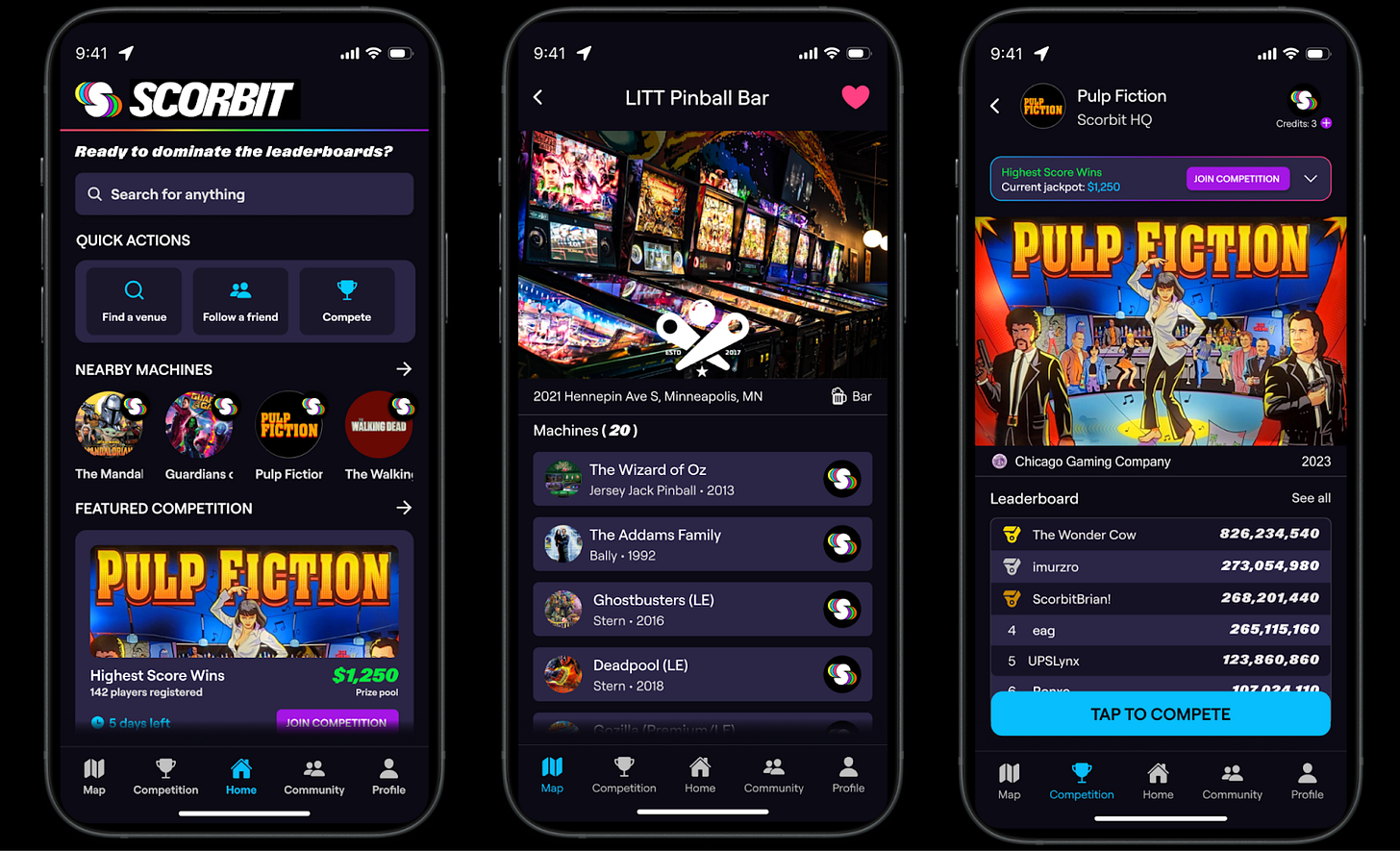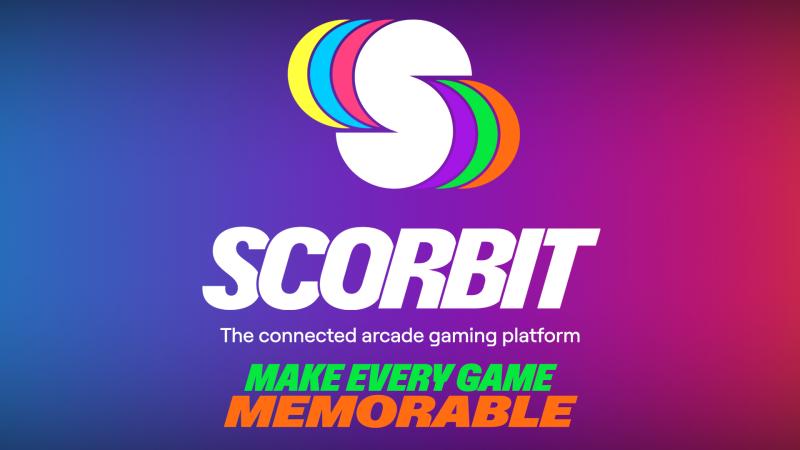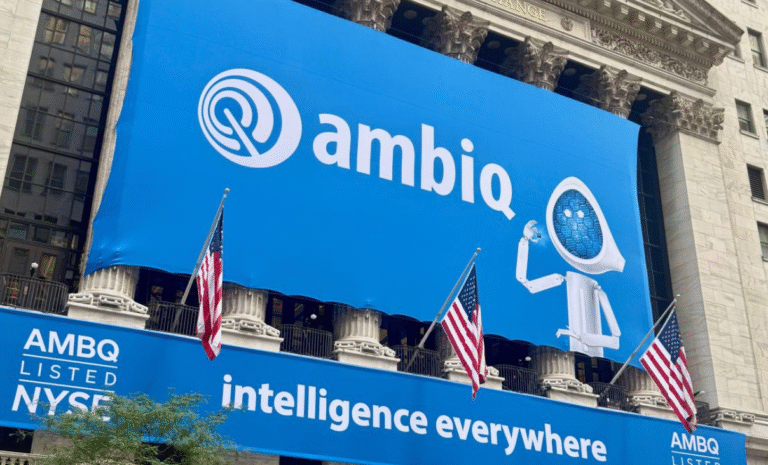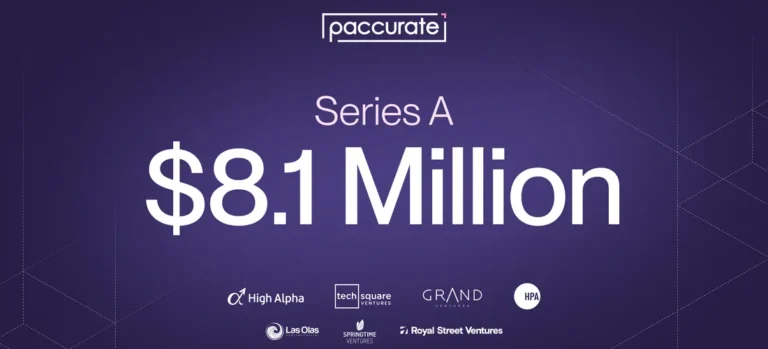Why We Invested in Scorbit
By: Nathan Owen
This past week, Scorbit announced the release of its v2 platform, a milestone that transforms the company from its 2016 origins as a geeky side project connecting retro pinball machines to the internet into a full-blown platform that makes every arcade game a social, competitive, and profitable experience.
I’m pleased to announce Grand Ventures’ investment in Scorbit alongside Detroit Venture Partners, Invest Detroit, Michigan Rise, eBerg Capital, and several notable angels. We made the investment in the summer of 2024 and we’ve been besides ourselves waiting to talk about it.
At Grand, we lean into opportunities at the intersection of legacy systems and next-generation transformation. Scorbit might look like a niche gaming play at first glance, but beneath the flippers it embodies the kind of infrastructure + community + data platform that defines Grand’s best investments. Here’s why we believe Scorbit is poised to redraw what connected arcade experiences can be.
The Opportunity
When we first saw Scorbit, we didn’t see a pinball company. We saw a connecting gaming platform company hiding inside a nostalgia brand — one that could bring real-time analytics, monetization, and community to an ecosystem that’s been offline for decades
Scorbit’s mission is to retrofit those machines via its Scorbitron software platform, mobile applications, and in some cases hardware, so that every retro pinball and arcade game can become part of a live, networked ecosystem. Players track scores, leaderboards update in real time, tournaments operate fluidly, and operators gain dashboards and data to optimize placement, pricing, and performance.
Scorbit’s go-to-market is elegantly simple. Venues and operators pay a monthly subscription per machine plus a one-time hardware cost to connect. Players can opt into premium tiers for tournaments, leaderboards, and wagering. The platform supports revenue-sharing models between Scorbit, operators, and venues, aligning incentives across the ecosystem.
If this sounds familiar, it’s because it mirrors the success of Golden Tee, the connected golf arcade game that generates more than $100M million annually. The economics of connected gameplay, competition, payout tournaments, and loyalty mechanics are evident with GoldenTee. Our investment in Scorbit is a bet that there is a massive opportunity to bring that same model to a much broader class of games.
The Founders: Jay Adelson and Ron Richards
Every once in a while, we meet founders whose backgrounds make you pause. Jay Adelson, Scorbit’s co-founder and CEO, is one of those rare builders who helped shape the modern internet before turning his attention to the analog world of pinball.
Jay has founded or led sixteen companies, including some of the most foundational in internet infrastructure and digital media. As co-founder and CEO of Equinix, he built what became the physical backbone of the internet — now a public company with a market cap north of $80 billion. He later co-founded Digg, one of the first social platforms to achieve mass adoption and is considered by many to be the spiritual precessor to Reddit,, and led Revision3, an online video pioneer later acquired by Discovery Communications.
Very few founders have built both the backbone of the internet and one of its first social networks. That unique mix of infrastructure-scale thinking and community instinct is exactly what will benefit Scorbit as it turns analog passion into digital scale.
Ron Richards, co-founder and Scorbit’s Chief Strategy Officer, brings deep entertainment and product experience from his time leading teams at Marvel, Disney, and Starwood Hotels. His background in storytelling and user experience, paired with Jay’s technical depth, gives Scorbit a rare combination of engineering precision and emotional resonance.

Scorbit’s Platform
Scorbit connects pinball and arcade machines—old and new—to the cloud. Using direct API integrations or the Scorbitron module, each machine streams live scores, diagnostics, and gameplay data into Scorbit’s platform. Players interact through a companion app to track achievements and compete asynchronously or in real-time tournaments, while operators use management dashboards to monitor uptime, analytics, and payments.
The hybrid model of hardware-enabled SaaS makes Scorbit defensible and scalable. It’s a patented solution that bridges multiple eras of hardware, from 1970’s circa electromechanical pinball machines to modern Linux-based cabinets. With over 13,000 machines and 4,000 venues already online, the platform is has already achieved true network density.

Every game Scorbit connects makes the entire network smarter — more data, more competition, more engagement. That flywheel is what makes Scorbit’s hybrid hardware–SaaS model so defensible.
The Road Ahead
Scorbit’s next phase is about scale: expanding machine connectivity, layering in new arcade titles, and driving monetization through subscriptions, payments, and sponsorships. The team plans to evolve the platform into a comprehensive operating system for competitive arcade play, enabling streaming integrations, predictive analytics, and data-driven insights for operators.
We firmly believe Scorbit can own this category. It’s rare to find a company that fuses technical rigor with pure enthusiasm for its craft. In Scorbit’s case, that passion has become a strategic advantage, fueling authenticity, trust, and adoption in an industry that’s both historic and hungry for modernization.
We’ve backed founders reimagining infrastructure across software, data, and now, play. Scorbit sits at the intersection of nostalgia and networks — proof that even the most analog experiences can thrive in a connected world.






